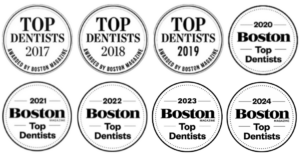Understanding Tongue Tie: Its Causes, Symptoms, and Treatment
Tongue tie, or ankyloglossia, is a condition that occurs when the lingual frenulum, the band of tissue connecting the underside of the tongue to the floor of the mouth, is not developed or is too short. This can result in a variety of symptoms and can affect speech, feeding, and oral hygiene.
That said, in this article, we will explore the causes, symptoms, and treatment of tongue tie.
The Causes
Although there is no definite cause for tongue tie, it is thought to be a congenital disorder that is present at birth. According to the findings of several studies, it seems to run in families and is more prevalent in males than in girls. There are some instances in which it is linked to other medical disorders, such as cleft palate or Down syndrome.
The Symptoms
The symptoms of tongue tie can vary depending on the severity of the condition. In infants, the most common symptom is difficulty with breastfeeding. Infants with the condition may have trouble latching onto the breast, which can lead to poor weight gain and inadequate nutrition. Other symptoms in infants can include a clicking sound during feeding, excessive drooling, and difficulty sticking out their tongues.
In older children and adults, it may cause speech difficulties. People with tongue ties may have trouble pronouncing certain sounds, such as “t,” “d,” “l,” and “r.” They may also have a lisp or difficulty speaking clearly. In addition, it can affect oral hygiene, as it can make it difficult to clean the tongue and teeth properly.
The Treatment
Its treatment depends on the severity of the condition and the symptoms that are present. In some cases, no treatment is necessary, and the condition may resolve on its own as the child grows. However, treatment may be necessary if the tongue tie is causing significant problems with feeding or speech.
One treatment option is a procedure called a frenotomy, which involves cutting the lingual frenulum to loosen the tongue. This minor surgical procedure can be done in a doctor’s office or clinic using local anesthesia. After the procedure, the child may be able to breastfeed more effectively and may have improved speech.
Another treatment option is speech therapy, which can help improve speech and language skills in children and adults with the condition. Speech therapy may involve exercises to strengthen the tongue and improve articulation and techniques for improving swallowing and oral hygiene.
In some cases, a more invasive surgical procedure may be necessary to correct tongue tie. This may be necessary if the tongue tie is particularly severe or if it is associated with other medical conditions. This procedure is typically done under general anesthesia and may require a hospital stay.
Conclusion
Tongue tie is a relatively common condition that can cause a variety of symptoms, including difficulty with breastfeeding, speech difficulties, and oral hygiene problems. While its exact cause is somewhat unknown, it is believed to be a congenital condition that is present at birth. Treatment for it depends on the severity of the condition and the symptoms that are present. In some cases, no treatment is necessary; in others, a minor surgical procedure or speech therapy may be necessary.
A medical professional should be consulted in order to establish the best treatment for tongue tie symptoms, whether they are being experienced by an adult or a child.
If you are looking to undergo CO2 laser treatment for tongue tie in Lexington, MA, look no further than our expertise here at Lexington Smile Studio. Our dental services include cosmetic dentistry, prosthodontics, implant dentistry, periodontics, and laser dentistry. Call us today to book your very first CO2 laser treatment session with us.



